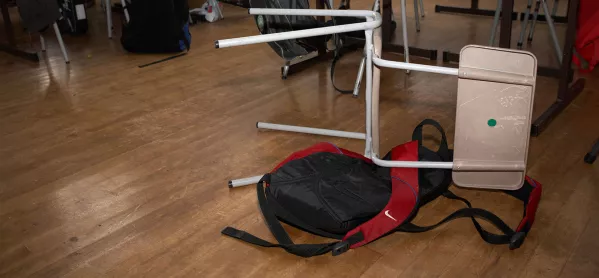Managing behaviour can be tricky at the best of times, but a new school year definitely brings extra challenges. Add a global pandemic and five months of partial closure, and you have the recipe for an interesting September.
I’m not claiming to be an expert, nor do I have a behaviour silver bullet, but I do have some experience of working in both mainstream and AP schools with pupils who display what might describe as “challenging behaviour”.
Here are the rules I’m setting myself for positive behaviour management in the Covid era:
Recognise the trauma
Things have been at best weird and at worst traumatic, and the truth is we will not know where each pupil falls on this continuum for some time. This will likely lead to changes in behaviour, possibly big, unexpected outbursts or incidents. We can’t accept these, of course, but we really need to support and encourage pupils to find the words to explain their emotions.
We must acknowledge and discuss how strange and confusing things have been, how the way in which the world has changed may have impacted on them. Try to “wonder” with your pupils and name emotions (anxiety, anger, mental exhaustion, and so on) for example: “I wonder if you are feeling really anxious about the new seating plan…”
Reinforce boundaries, but give space
We need to remind pupils that this is school and that we have certain behaviour expectations (wearing uniform, using positive language, staying in their seat, and so on). Talk about why certain behaviour is unacceptable explicitly and reinforce it regularly.
But we must make sure that pupils have a chance to do the right thing. “Thinking time” will be vital in getting through the next few weeks. Confrontation raises everyone’s stress levels and rarely works.
Move away from one size fits all
Unacceptable behaviour is always unacceptable but it’s important that pupils understand that different indiscretions receive different levels of reaction; racism, homophobia and bullying, for example, will receive an immediate and firm response and action, whereas talking over someone will receive a lesser reaction.
There is no shame in using negotiated responses. The consequence is the certainty of punishment, not the form it takes.
Don’t expect the worst (but prepare for it)
We know that some pupils will really struggle with being back in an environment where they have daily routines, clear rules and perhaps different behaviour expectations than they have at home or in their community. We need to prepare for this and bit our metaphorical armour on.
However, if we expect it, pupils can read this on our faces, in our body language and in every interaction. Praise, catch them being “good”, encourage and remind them that we know this change in situation can be hard. Valuing trying, not perfection.
Be kind to yourself
You have been through a trauma too and you won’t always get it right. Your anxiety may be high and/or your resilience low, so if you do lose your temper or react in a way that you regret, don’t be afraid to apologise. Pupils need to understand that teachers are humans and that it’s OK to sometimes make mistakes if you ‘make good’ afterwards.
This is especially powerful if you name what you have been feeling. For example: “I felt really angry because I had spent a lot of time on that display…” Some of the most powerful experiences I have had with pupils involve me admitting that I am not infallible and that I have overreacted.
I remember one pupil damaging a display that had taken me ages (I hate putting up displays and I’m rubbish at it) and I lost it. I shouted (which I don’t usually do that much). I didn’t really give her time to explain, I didn’t try and communicate and I didn’t give myself a moment to think. I reacted impulsively and loudly, which of course escalated the situation and, on reflection, was unfair.
A bit later I sought this student out to say sorry and to explain what I had been feeling and why that might have been. It was a powerful experience which ended in a much closer bond with that pupil, who I previously hadn’t had the best relationship with.
I wasn’t “soft” with her - I was firm, fair and had clear boundaries, but she knew that I valued her, so if I was challenging her or putting a sanction in place, it was easier for her to accept.
So, those are my thoughts. I know we won’t all agree, and why should we? All humans are different complex beings with their own experiences and values, but ultimately that is exactly what I’m saying.





